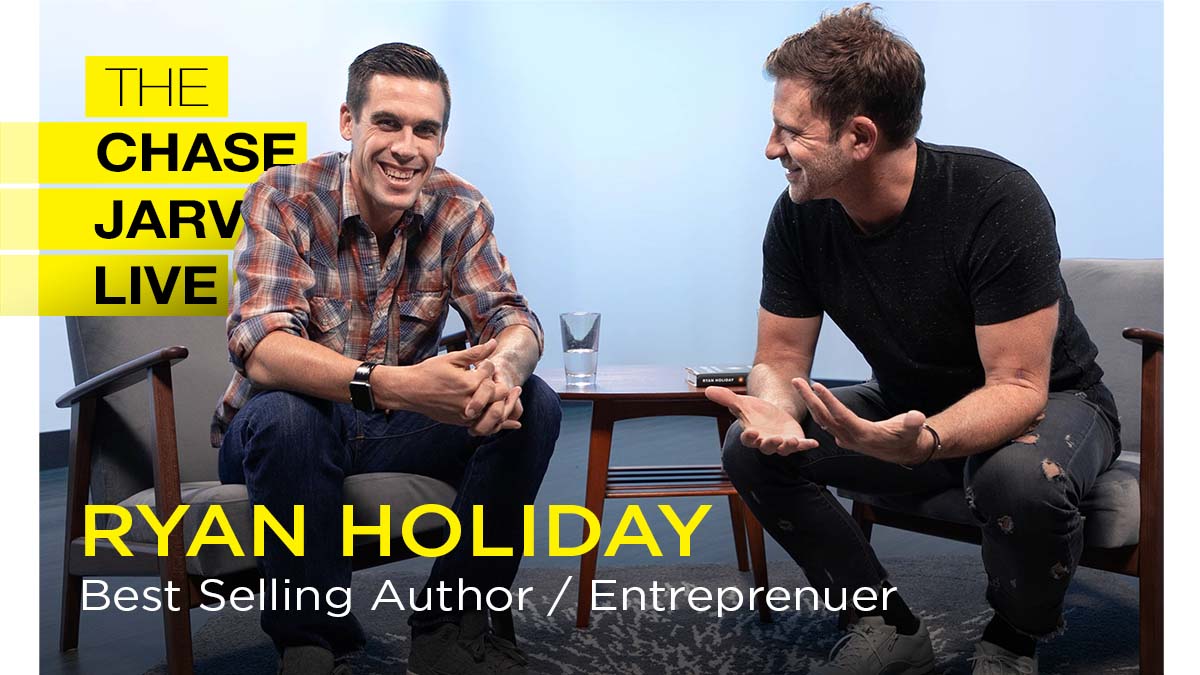
It’s rare to find someone who can take ancient, complex philosophy and make it feel like it was written specifically for you, right now. Ryan Holiday is that person. He has a truly unique gift for mining the wisdom of the Stoics and translating it into practical, urgent advice for navigating modern life. I’m always struck by the timing of his books. They seem to land at the exact moment we need them most, tackling timeless virtues like courage, discipline, and now, justice, in a way that feels both profound and incredibly down to earth.
For those who don’t know his story, Ryan’s path has been a fascinating one. He started out as a brilliant and sometimes controversial marketing mind, working with authors like Robert Greene and becoming the director of marketing for American Apparel. His early books, like Trust Me, I’m Lying, pulled back the curtain on the mechanics of media and attention. But then he made a deliberate pivot. He began sharing the philosophical system that had guided him personally: Stoicism. Through books like The Obstacle Is the Way and Ego Is the Enemy, and his founding of Daily Stoic, he single-handedly sparked a global renaissance in Stoic thought, not as an academic exercise, but as a framework for a better life.
Our history goes way back, and I’m proud to say that Ryan is now officially the most frequent guest in the history of my show. In fact, his first-ever podcast interview for a book was with me, for Trust Me, I’m Lying. It’s been a privilege to watch his journey and to have these deep, insightful conversations over the years as his work has evolved. Each time he comes on the show, he leaves our audience with powerful ideas that are immediately applicable to anyone trying to build a meaningful career and a good life.
In our latest talk, we dove into the ideas in his new book, Right Thing Right Now. It’s not about abstract moral debates but about the tangible, daily choices that define our character. Here are a few of the core concepts we discussed that you can apply to your own life and creative work today.
Pick Your Starfish
The world is full of problems, and the sheer scale of them can be paralyzing. It’s easy to look at everything that’s wrong and conclude that nothing you do can possibly make a difference. Ryan counters this with the simple story of the boy on the beach, throwing starfish back into the ocean one by one. When told he can’t possibly save them all, the boy replies, “It matters to this one.” The fact that you can’t solve every problem doesn’t exempt you from solving the ones you can.
- Find Your Focus. What is one issue in your community, your industry, or the world that you genuinely care about? Don’t try to boil the ocean. Pick one thing.
- Start Small. Your contribution doesn’t have to be a global movement. Pick up the trash on your street. Mentor one young creative. Make your own business’s packaging more sustainable.
- Do It Consistently. The power isn’t in a single grand gesture, but in the cumulative impact of small, repeated actions. Make it a habit.
Make Your Ethics Tangible
Philosophy often gets stuck in abstract thought experiments, like the famous trolley problem. Ryan argues that these are mostly a distraction from the real, tangible ethical questions we face every day. Do you pay your employees a living wage? Do you vote? Do you know where the materials you use in your products come from? These are the questions where the rubber truly meets the road.
- Audit Your Daily Decisions. For one week, pay close attention to your choices. What companies do you support with your money? How do you treat the people you interact with, from your team to the barista at the coffee shop?
- Connect Your Values to Your Actions. If you value community, shop at local businesses. If you value fairness, look at your own pricing or hiring practices.
- Take Responsibility. As Ryan says in the book, act as if your decisions have moral consequence, because they do. Don’t pass the buck by saying your vote doesn’t matter or that you’re just one person.
Dare to See the Factory
It’s easy to operate with a “laissez-faire” attitude when you don’t have to see the consequences of your choices. Ryan shared the powerful story of Theodore Roosevelt, whose perspective on labor laws was completely changed after he was convinced to visit the horrendous conditions of a tenement cigar factory. He couldn’t unsee what he saw. In our own lives, we often choose not to look at the “factories” behind our conveniences, our industries, and our creative work because it’s uncomfortable.
- Ask the Uncomfortable Questions. Where are your prints made? What are the labor practices of the software company you use? It’s not about finding perfect answers, but about starting the inquiry.
- Seek Out Different Perspectives. Follow people on social media who are impacted by the issues in your industry. Read books and watch documentaries that challenge your worldview.
- Take One Step. Once you see something, you can’t unsee it. You don’t have to become an activist overnight, but you are now obligated to do something differently. Maybe it means finding a new supplier or simply speaking up about what you’ve learned. The first step is what matters.
PS – If you’re looking for a guide to help you build the life and career you’ve always wanted, the Seven Levers for Life is a free 7-day email course on just that.


















